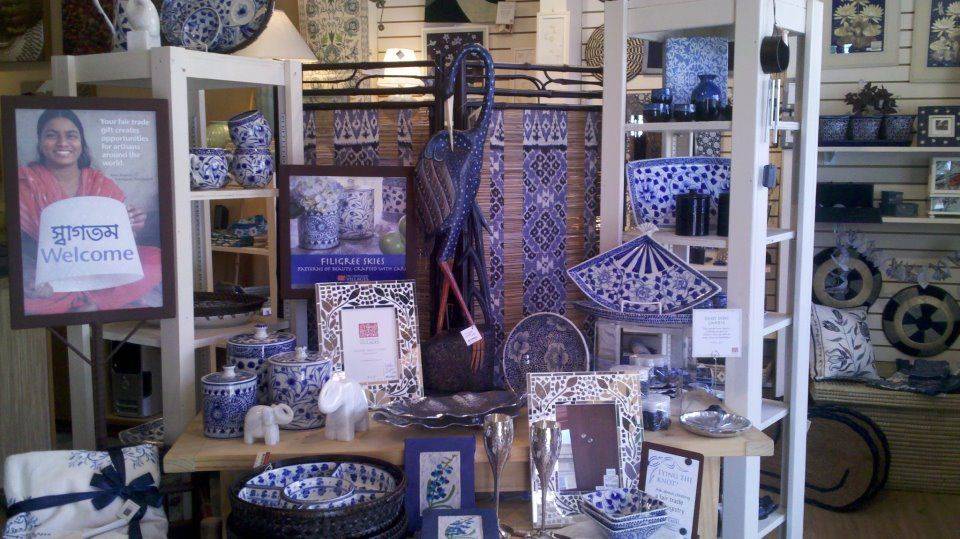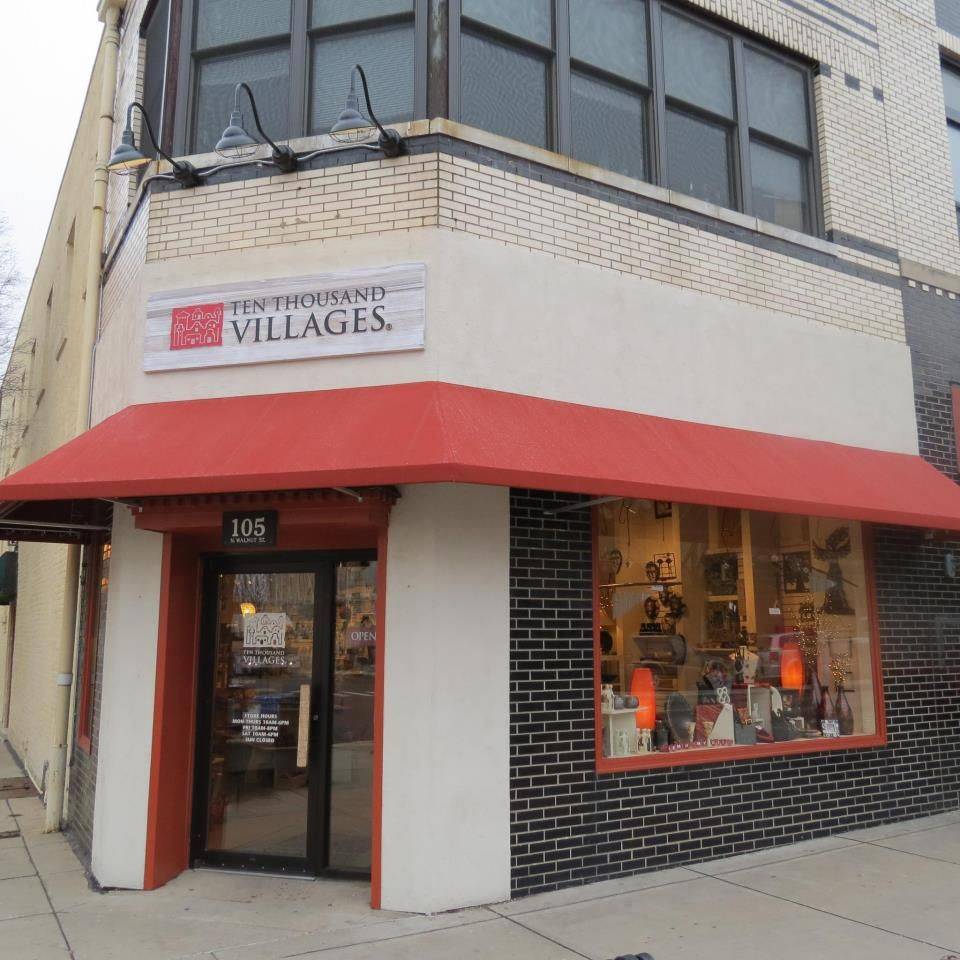In Colombia, a woman fashions figures out of orange peels. In Kenya, stones are hooked together, entwined marriage symbols of unity. In the Philippines, earrings are formed in a circular shape, dangly and pretty and pleasing to the eye.
This is Ten Thousand Villages, a shop in downtown Champaign that brings the works of artisans from all around the world together, all in the name of fair trade and sustainability.
Carrie Nelson, the assistant manager, and Emily King, the manager, run the shop, which has been in Champaign for twenty eight years. They explain the mission of Ten Thousand Villages succinctly.
“Fair trade,” Emily said, “is about sustainable income. The focus is on long term relationships, so it’s about building communities. It’s about the future, supporting people whose crafts can lead to healthcare, education.”
How it works is pretty simple. Ten Thousand Villages has people in countries around the world who work with artisans. The artisans negotiate with these people to receive a fair wage and price for their products, and they receive half up front, half when the project is finished.
By the time the finished product reaches the store in Champaign or in other stores around the country, the artisan has already received their due. Ten Thousand Villages does the rest.
So where does fair trade come in?
“People producing products are paid a fair wage,” Carrie said. “There is no child labor. It’s all about adult artisans. When I think of fair trade, I think of empowerment and integrity.”
Ten Thousand Villages has an array of products in its shop, ranging from chessboards to orange peel figures, from earrings and figurines. Some might look at the array and see too many different products, but Carrie sees it differently.
“Everything is so unique that people find connections with different products,” she said.
The response to the shop in the community has been similar, she said.
“It was fun to work in the busy holiday season. People would come in, burned out from the retail stores. Everything in this store has a story. Everything is so valuable. We have completely unique products.”
 According to the annual report for Ten Thousand Villages from April 1st, 2012 to March 31st, 2013, retail sales for shops across the country exceeded 14 million dollars, creating a five million dollar profit after factoring in retail expenses.
According to the annual report for Ten Thousand Villages from April 1st, 2012 to March 31st, 2013, retail sales for shops across the country exceeded 14 million dollars, creating a five million dollar profit after factoring in retail expenses.
The organization, founded in 1946, has grown from “the trunk of Edna Ruth Byler’s car to a network of more than 390 retail outlets throughout the United States selling Ten Thousand Villages products.”
Its mission is “to create opportunities for artisans in developing countries to earn income by bringing their products and stories to our marks through long-term fair trading relationships.”
The shops of Ten Thousand Villages accomplish this by featuring unique artisan-crafted products that people have a connection to. But the inner-workings of the organization aside, Emily says the benefits of fair trade can have a major impact for artisans in their lives.
“It’s about creating change for the future as well as the present,” Emily said.
According to the vision statement on their website, “One day all artisans in the developing countries will earn a fair wage, be treated with dignity and respect and be able to live a life of quality.”
Even the name and logo represent the values that Ten Thousand Villages wants to project. The name came from a Mahatma Gandhi quote: “…India is not to be found in its few cities but in the 700,000 villages…we have hardly ever paused to inquire if these folks get sufficient to eat and clothe themselves with.”
The logo goes even further: “The continue line of rooftops reminds us we are all linked together as we live on this earth. The light in the doors and windows reminds us of homes of people with whom we work in many villages. The warm red color and hand-etched edge represent the materials and methods used to make quality handcrafts we sell.”
Ten Thousand Villages also focuses on sustainability, putting an emphasis on materials that grow quickly or re in abundance. That focus continues on to the artisan himself. As Carrie puts it, “We want to invest in you and help find a market for your products.”
Volunteers find it hard not to get inspired for the cause. To volunteer, applicants are to fill out an application and undergo training, which occurs twice per year. They are educated on the store, about the products, about fair trade. Volunteers are required to volunteer at least twice per month, and staffing the store with volunteers keeps retail costs at a minimum.

One volunteer said, “It’s hard not to get excited about this cause. It’s about helping others have a better future.”
And as Carrie said, “There’s the safety of continued paychecks as well.”
According to everyone who works there, Ten Thousand Villages has a strong purpose and cause to help artisans build their lives in impoverished countries around the world. While most of the products come from Asia, Africa, Latin America, and the Middle East, the goal of Ten Thousand Villages is to build stronger communities in all places that need them and to strengthen relationships with artisans around the world.
So, in Colombia, a woman creates figures out of orange peels. In Kenya, artisans fashion unity figurines out of white rock. In the Philippines, people craft earrings that sell in stores across America.
And Ten Thousand Villages makes it possible.








